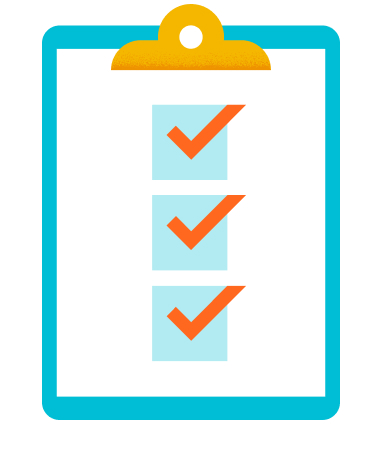Prenatal care
Supporting a healthy pregnancy
If you just took a pregnancy test and got a positive result, there may be a lot going through your mind. After you process the fact that you might be pregnant, the next step for many expecting moms is to schedule a doctor’s appointment. The earlier you start your prenatal care — also known as care you receive while pregnant — the better. Prenatal care is one of the best ways to reduce the risk of complications for both you and your little one, helping to reduce low birthweight1 and iron-deficiency anemia, which can lead to premature birth.2

Prenatal visit checklist
What to bring:
- Health coverage card and ID
- List of medications and supplements
- Questions or symptoms to discuss
- Support person (if allowed)
What to ask
- Are there any lifestyle changes I should make (diet, vitamins, exercise, sleep, etc.)?
- What symptoms are normal, and which ones should I call you about?
- What prenatal tests or screenings will I need, and when?
- How often will I have appointments, and what happens at each one?
To learn more, download the Prenatal Visit Checklist
What happens during a prenatal care visit?
Depending on where you are in your pregnancy, prenatal appointments may include:
- An estimated due date
- A review of your medical history
- A physical exam
- Blood tests
- Measuring your baby’s growth
- Checking your baby’s heartbeat
- Checking your blood pressure
- Recording your weight
- A urine sample, or urinalysis, to look for glucose (or sugar) which can indicate pre-existing type 2 diabetes, protein, which can be a sign of preeclampsia (pregnancy induced high blood pressure) and the presence of bacteria, which can indicate a urinary tract infection
- At least one ultrasound, possibly more
Additional tests may be required, depending on your needs. Your provider will decide how often they want to see you throughout your pregnancy.
How often do I need prenatal visits?
If you’re over 35 or have a pre-existing health condition, your doctor may want to see you more frequently. Otherwise, prenatal appointments will likely be scheduled:
- Once a month from weeks 4 to 28
- Every two weeks from weeks 28 to 36
- Every week from weeks 36 to 40

Other than doctor’s appointments, what does prenatal care include?
Going to the doctor is a great first step in getting the prenatal care you need. Other important aspects of prenatal care include:
- Following a healthy diet.
- Taking your prenatal vitamins every day. Folic acid, a B vitamin, can help prevent major birth defects and help nourish your developing baby.4
- Maintaining a healthy weight. Talk to your doctor about how much weight you should gain during your pregnancy.
- Not drinking alcohol, using street drugs or smoking. Even small amounts of nicotine during pregnancy can increase the risk for Sudden Infant Death Syndrome.5 Drinking alcohol increases the risk of having a baby with fetal alcohol spectrum disorder (FASD).
- Staying out of hot tubs and saunas, where the heat can raise your body temperature.
- Asking your doctor before stopping any medications or starting any new ones. Some medicines, including over-the-counter and herbal remedies, aren’t safe during pregnancy.
- Exercising during pregnancy to lower stress, strengthen muscles and reduce fatigue.
- Staying hydrated. Try to drink at least 8-12 glasses of water a day.6
- Getting plenty of rest. If you feel tired, take a break. Don't push yourself. to maintain your usual pace. Try to get 7-9 hours of sleep at night.